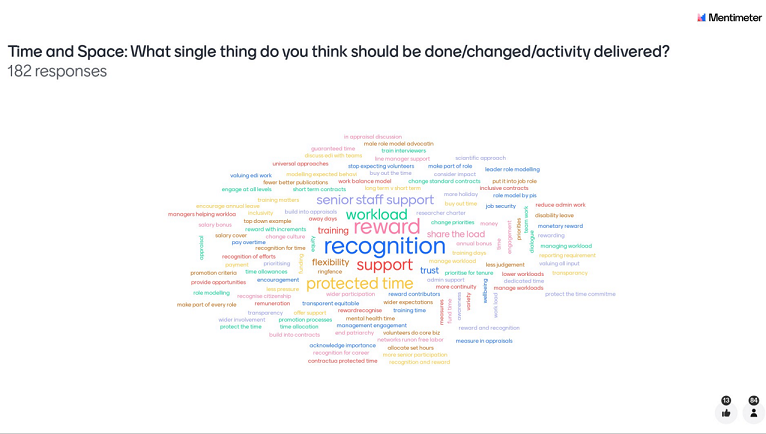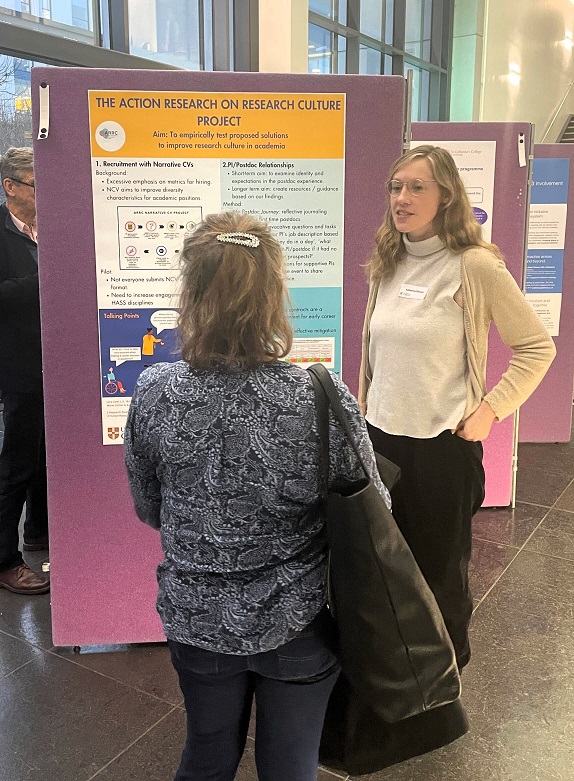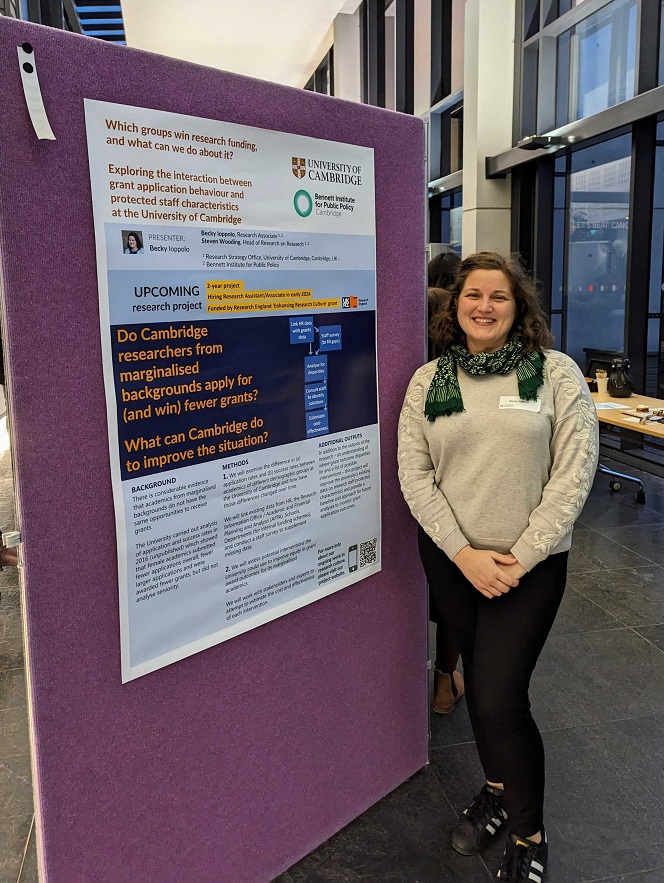Submitted by K.M. Dawson on Mon, 18/12/2023 - 15:47
Last week we attended the Clinical School’s EDI and Culture conference. We had a great day and would like to thank the organisers for inviting us.
Between manning the research culture resources table and our posters, we managed to attend most of the talks. Here are a few personal highlights:
-
Simon Woolley gave the keynote; an inspiring account of how EDI can make a difference to us all. He mostly referenced his experience as a founder of Operation Blackvote, and his life-long campaign for inclusion for black people and people of colour in existing power structures.
-
Liz Simmonds and Julian Rayner spoke about research culture at Cambridge (so an obvious favourite!). Liz talked about the institutional priorities, which are:
-
Precarity
-
Access and participation
-
Challenging interpersonal/group dynamics
-
Time & Space
-
Julian conducted a great exercise using ‘Mentimeter’ to crowd-source ideas on the priorities, for example this question:
-
Claire Meek gave a case study on how to include EDI in research assessment, with a practical breakdown of her department’s assessment process for a larger scale grant. She noted that you can’t just copy and paste a generic EDI statement at this point in time. You need to have thought through an authentic and tailored approach – which could include participating in our research!
-
Janet Deane talked about the Postgrad Life Sciences Summer Programme, a fantastic opportunity for undergrad students who are underrepresented or would otherwise struggle to participate in research internships.
-
Benjamin Krishna spoke on assisting people with their EDI plans and statements, and how we need to support researchers, allowing for the fact that not everyone has equal awareness and training in how to execute an impactful and realistic EDI agenda.
The team also presented two posters, one on the Action Research on Research Culture Project, and one on a newly funded project on diversity in grant outcomes.
Overall, the central message of the conference was well taken – that diversity of who is making decisions, or ‘at the table’, so to speak, leads to better outcomes for all. Also, that inclusion and equality in the workplace are not just add-ons to a productivity strategy; employees who feel valued and acknowledged for their work tend to be happier, more engaged and are more likely to transmit this ethos to others.



